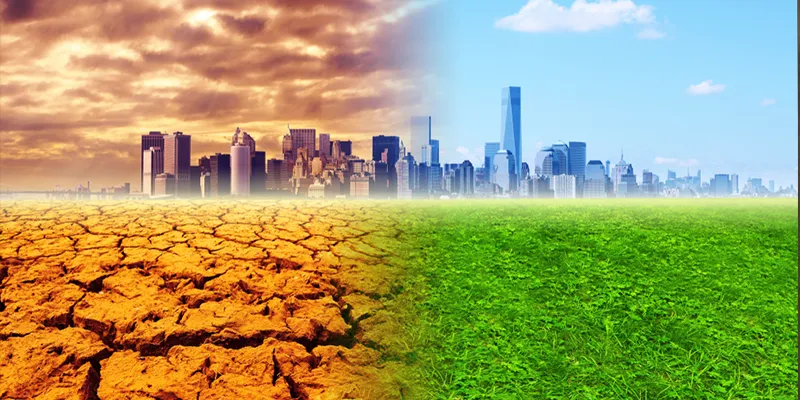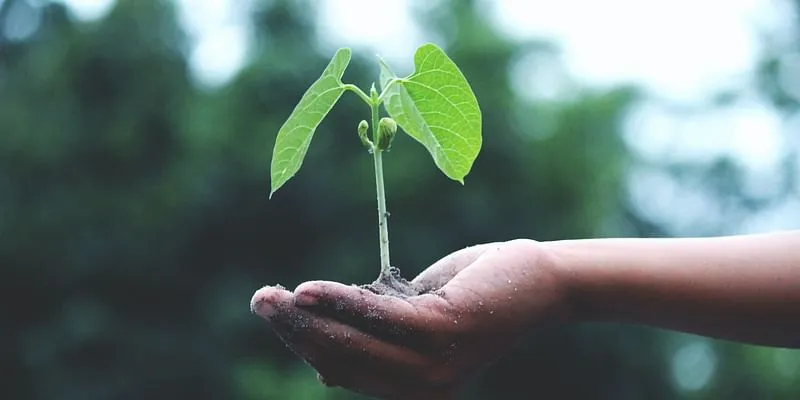Climate justice: Do pledges ignore unequal emissions?
Recent pledges to cut greenhouse gas emissions have failed to account for the rich world's historical carbon debt to poorer ones.
When Joe Biden boasted to world leaders last month that the US would halve its greenhouse emissions by 2030 from 2005 levels — urging his counterparts from countries like China and India to commit to stronger action — the US president left environmentalists unconvinced.
The cuts are more ambitious than previous targets to burn less fossil fuel. But they will not stop the US from overshooting its fair share of the emissions that can be released to meet the 2015 Paris Agreement pledge to keep warming well below 2 degrees Celsius, and ideally 1.5C, according to independent research project Climate Action Tracker.
This is a question of justice: The US has polluted the atmosphere more than any other economy on the planet and also has more money to deal with it. Factoring in those inequalities, Biden's pledge is "very close to or just within" the range of cuts needed to reach 2C, said Andreas Geiges, a researcher at Climate Analytics, which jointly runs the project. But it falls short of the more ambitious 1.5C target — even before considering its historic responsibility.

Representational image
As leaders pledge to act faster on climate change ahead of the COP26 climate summit in November, public figures from activist Greta Thunberg to UN Secretary-General Antonio Guterres are demanding not only climate action, but climate justice. The two words have echoed through megaphones at packed rallies and resurfaced on placards and in Instagram posts after coronavirus lockdowns kept protestors at home. They are increasingly found in scientific studies and political speeches.
"We demand that you stop systematically targeting the Global South — and Black, brown and indigenous communities — through environmental plunder," said 19-year-old activist Xiye Bastida from Mexico when she addressed world leaders at the summit in which Biden pledged steeper cuts. "Solutions must be aligned with the fact that climate justice is social justice."
What is climate justice?
Climate justice is a term that acknowledges those most responsible for burning fossil fuels are least hurt by their effects on the climate. It covers differences in age, wealth and race, as well as gender, sexuality and disability. It also includes policies protecting workers reliant on fossil fuel industries from the switch to clean energy.
"We're all in this climate crisis, but we're not all in it together," wrote Georgetown University philosopher Olúfẹ́mi Táíwò in DW newsletter Undercurrent in March.
Each year, rich countries like the US emit about 10 times as much carbon dioxide as poorer ones like India, and about 20 times as much as a country like Nigeria. The imbalance of emissions is skewed even further because industrialized countries have been polluting the planet for longer.

A study published in the journal Lancet Planetary Health in September found that countries in the Global North are responsible for 92% of the excess emissions that pushed the planet beyond a safe atmospheric CO2 concentration of 350 parts per million. Asia, Africa, Latin America and the Middle East — excluding Japan and Israel — are responsible for just 8%.
The study calculated each country's responsibility for "climate breakdown" by subtracting their total emissions from the amount they should have been entitled to. By accounting for changes in population size over time, and emissions embodied in goods traded across borders, the study found that even China, today the world's biggest polluter, is only just using up its fair share of emissions now. Previous studies had calculated smaller but still unequal levels of responsibility.
"It's mind-boggling," said Prakash Kashwan, a professor of political science at the University of Connecticut studying climate justice, who was not involved in the study. "The kind of inequalities that have brought us to the current climate crisis, they're unbelievable and they aren't talked about enough."
Richer people emit more CO2
Emissions aren't just unequal between countries. They're also unequal within them.
The world's richest 1% emit more than twice that of the poorest 50%, according to a study published in September by UK-based charity Oxfam and the Stockholm Environment Institute in Sweden. A third of those elite emissions come from rich people in the US, but the wealthiest in poorer regions like the Middle East and China make up the next biggest shares.
Emissions from the booming middle class in countries like China and India are still important, the authors wrote, but "the rapidly accelerating growth in total emissions — and the attendant rise in climate crisis risks and damage — has categorically not occurred to the benefit of the poorer half of the world's population."
"This is essentially what it comes down to," said Payal Parekh, a climate scientist who campaigns for climate justice. "The world is very unequal and it's playing out in terms of climate change as well."
How unequal are the effects?
The inequalities also stretch to the effects of climate change. Countries in the Global South have already been hit harder by climate-related disasters as the planet heats up.
Across Africa, extreme heat is growing so severe that some areas could be uninhabitable within decades. Big cities will increasingly become too hot to safely walk outside in, and those who can't afford air conditioning struggle to stay cool indoors. Droughts will intensify in East and southern Africa while deserts creep across the continent and take over fertile farmland.
In Asia, between one-quarter and one-third of the ice in the Hindu Kush Himalayas will vanish by 2050, leaving 1.5 billion people who rely on its rivers at the whim of too much water, as glaciers melt and riverbanks swell, and then not enough, as waterways sustaining crops and livelihoods dry up.

By then, sea levels will have risen so high that coastal floods that used to hit once a century will strike many cities every single year, wreaking havoc on the continent's densely populated and low-lying coasts.
By calling for climate justice, young activists are demanding world leaders act with the understanding that climate change is not only bad but also unfair.
"Everyone already is affected by the climate crisis, just on a very different scale," said Line Niedeggen, an activist with Fridays for Future in Germany.
"They are destroying our environment," echoed Kevin Mtai, an activist with Fridays for Future in Kenya. "They need to act now, not later."
(This article by author Ajit Niranjan was originally published on Deutsche Welle.)
Edited by Anju Narayanan
(Disclaimer: The views and opinions expressed in this article are those of the author and do not necessarily reflect the views of YourStory.)








